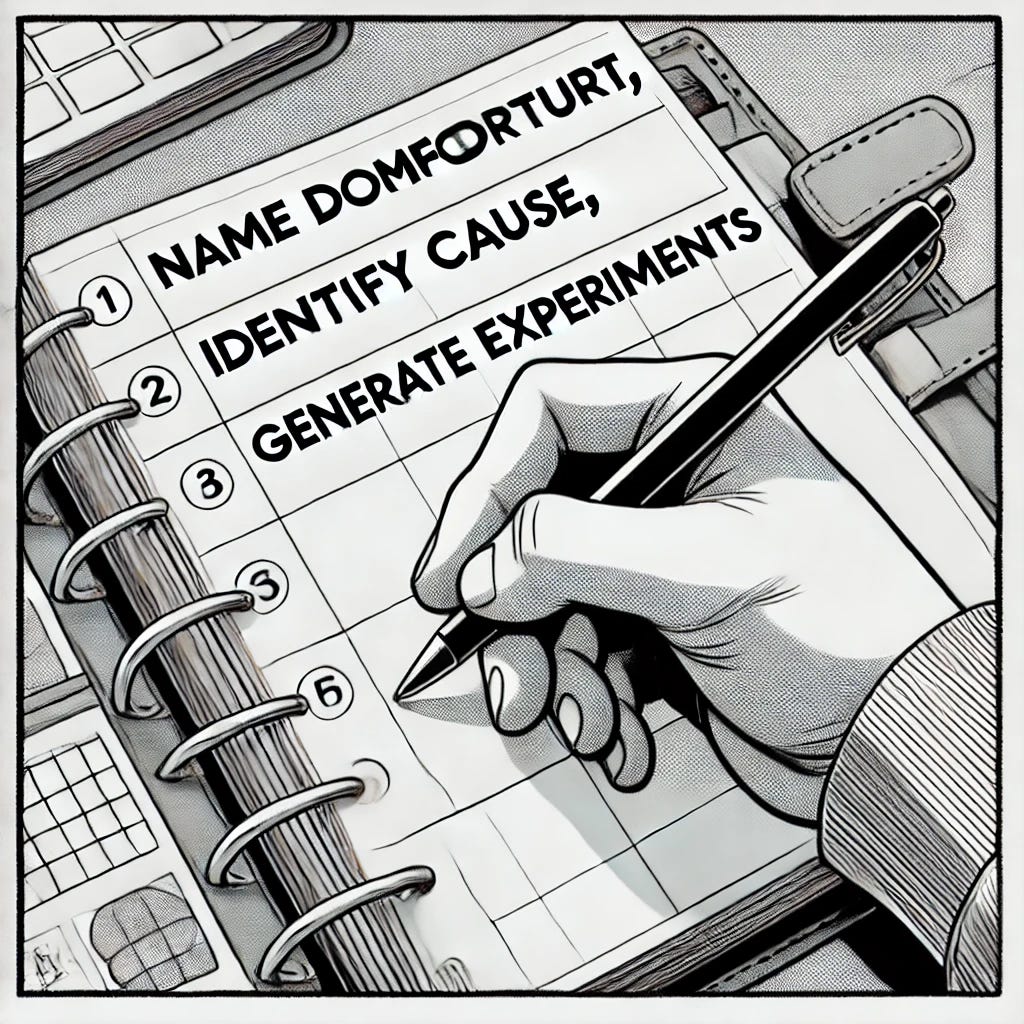Announcement: Some people have said that this email is in their promotion inbox and not primary. If that was you, please move it to the primary inbox. You can follow the step here.
-
I met with a community member last week who, by conventional standards, is thriving in her career.
Challenging role in a multinational company, respected by colleagues, solid compensation. On paper, everything looks perfect.
Yet over our walk, she confessed feeling oddly empty and unfulfilled. “Something has to change,” she said, “but I’m not sure what.”
Maybe it’s moving overseas. Maybe it’s going back to school. Maybe it’s something else entirely.
What struck me wasn’t her confusion about the solution, but her belief that her discomfort wasn’t “bad enough” to warrant action. As if she needed to reach some threshold of suffering before making changes.
I recognized this pattern immediately because I’ve lived it.
Back in 2023, I stayed in my PhD path that felt slightly wrong for months, rationalizing that the pay was ok, the status was great, and the work was respectable.
The discomfort was manageable, so I managed it – until it wasn’t, and I couldn’t manage anymore.
What could have been an orderly transition became an emergency exit, painful for everyone involved. (still sad thinking about it)
The Sensitivity Advantage
Here’s what I’ve learned: The most adaptable people aren’t those who endure more pain before changing – they’re those who respond to whispers rather than waiting for screams.
Those most attuned to subtle discomfort make the most consistent progress. They notice small signals – minor energy dips – and address them before they become crises.
For example, when the conversation gets a little bit draining, you can point that out. You don’t have to wait for the entire long conversation before you can feel like, “Oh, wow, I didn’t really enjoy it.”
This responsiveness to mild discomfort isn’t weakness – it’s a competitive advantage.
The “Sweat the Small Stuff” Framework
The real barrier to transformation isn’t insufficient pain, but the inability to translate existential discomfort, no matter how minor, into meaningful action.
That vague feeling of “something’s off” needs a systematic approach to become actionable:
Name the discomfort precisely: “I feel drained after client calls” is better than “I’m unhappy at work”
Identify when it intensifies or diminishes: Track exact situations that shift your energy. For me, for eg, when there is too much stressed out thinking.
Connect it to your deeper values: Ask which core needs aren’t being met. For me, a lot of times it is connection. I’d feel disconnected from the work, or the people I am working with.
Generate small experiments: Design tiny, low-risk actions to test potential solutions. For eg, I asked myself “what does it look like that I feel more connected right now?” Usually it’s deep breath, and calling up someone close to me.
This translation skill separates those who continuously improve from those who stay stuck, despite clear warning signals.
Your Practice
After any situation that leaves you feeling slightly off, try this simple question:
“What specific aspect felt misaligned, and what would alignment look like?”
(For me, it’s that I’ve not been connecting with local friends in Vietnam, because I’ve been focused on job search).
This week, notice one area where you’ve been experiencing mild but persistent discomfort.
Apply the framework above to convert that feeling into one small experiment you can try.
Because you’re already experiencing all the signals you need for every change worth making. You don’t need more suffering – you just need better sensitivity of the discomfort you already feel.
The whispers contain all the wisdom of the screams, with none of the damage.
With clarity,
Khuyen
--
PSS: Like what you read? Join 500+ others receiving my daily sharing on making clearer decisions & stronger connections.




